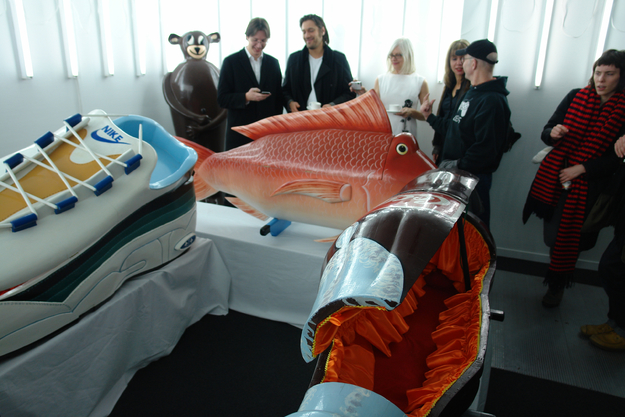The Merry Cemetery is the Orthodox gem of northern Romania. It’s well known for its colourful grave ornaments - crosses painted a memorable blue, with naive paintings and poems about the life and death of each person buried there. Some poems, about untimely deaths, are bitter-sweet; one, about someone’s mother-in-law, asks passers-by to not wake her up for she will surely come back home and get mad; one talks about the deceased’s penchant for alcohol and women; others present the irony of accidental death. Mourning here is numbed by humour. These symbols of death are imbued with an undeniable liveliness. “I had to die, now you have to miss me,” reads one cross, and the feeling is echoed under different forms everywhere. With its good and bad, life was lived and had to end - now it is the duty of those reading the crosses to live their lives to the fullest, and to spare the dead a thought in their prayers.
Pagan elements blend with Christianity in Mexican tradition - the Day of the Dead is a celebration of the fragile spiritual journey between life and death, where the living gather to remember and celebrate those they have lost. Vigils are supplemented by offerings at altars, food, and decoration; rather than grim black clothes, people don colourful costumes. By living at one’s fullest on this holiday, one shows their love and respect for their dead relatives. Moreover, there is a special gentleness in the ritual of cleaning and decorating graves and sharing stories about the people in them, as opposed to the normalised avoidance of cemeteries. This celebration challenges the finality of death by proving that, as long as there is someone who remembers you fondly, you may still have a reason to dabble in the very human pleasure of celebration once a year.
Ghanaians in general, and especially the Ga people, give undeniable flair to funerals. Funerals are some of the most significant opportunities to get social and party in Ghana, and demanding that people stick to a tight guest list is a no-do. When in Ghana, you have to go out in style: so crowds of people gather to wave off the deceased, who is usually placed in an expensive and monumental fantasy coffin. These elaborate contraptions are the work of Accra’s artisans, and help to redirect the deceased to another life while representing the one that just elapsed in order to help them continue their profession or keep the same character traits in the afterlife. Whether it is a German car, a banana, an iPhone, a crate of beer, or a condom sachet, elaborate Ghanaian coffins will disrupt the sorrow of any mourner and endear them to celebrate the unique life of the deceased. In 2009, Mediamatic hosted Ik R.I.P., where a custom teddy bear coffin was ordered from Ghana. It expresses the playful nature of dead.
As for the casual cemetery visit, I think it’s up to what you make of it - there’s no reason why you shouldn’t take some small, individual joy out of the experience (without being a creep). I remember the cold gravestones of the old and damp Saxon cemetery in a forest on a hill where I used to binge-read cheap fiction as a young teenager during unbearably hot summer days and where, three decades earlier, my aunts used to sneak out of school to smoke in secret and eat berries growing by the alleys. There’s no colourful additions, no noise from celebrations, no smell of sweets - but in a place that might be considered sinister, I found joy in the silence and nature around me.



